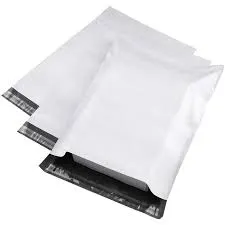Eco-Friendly Salad Bags Made from Biodegradable Materials for Sustainable Living
Biodegradable Salad Bags A Sustainable Solution for Fresh Produce
In recent years, the shift towards sustainability has gained momentum, as consumers and businesses alike become increasingly aware of environmental issues. Among the various products that have emerged in this green movement are biodegradable salad bags. These innovative bags serve a dual purpose they provide a convenient way to transport fresh produce while also minimizing plastic pollution.
Traditional plastic bags, often used for salads and other leafy greens, pose significant environmental challenges. Made from petroleum-based plastics, these bags can take hundreds of years to decompose, contributing to the growing problem of ocean and land pollution. In a world grappling with the repercussions of plastic waste, biodegradable salad bags represent a pivotal change in how we package and transport food.
What exactly are biodegradable salad bags? These bags are typically made from materials like corn starch, potato starch, or other plant-based substances that can break down naturally in the environment. Unlike conventional plastic, which can persist for centuries in landfills, biodegradable options decompose within months under the right conditions. This makes them an attractive alternative for consumers looking to reduce their carbon footprint.
Not only do biodegradable salad bags help alleviate the pressure on landfills, but they also promote a healthier ecosystem. When these bags break down, they do so into natural components, such as water, carbon dioxide, and biomass, rather than toxic chemicals. This means that using biodegradable salad bags can ultimately contribute to enriching the soil, rather than harming it, as is often the case with regular plastic waste.
biodegradable salad bags

In addition to environmental benefits, biodegradable salad bags appeal to health-conscious consumers. With an increasing number of people prioritizing organic and sustainably sourced foods, they want packaging that reflects their values. Biodegradable bags not only align with these principles but also ensure that the freshness and quality of the produce remain intact. More and more grocery stores and farmers' markets recognize this demand and are beginning to offer biodegradable options to their customers.
The transition to biodegradable salad bags has also sparked innovation in the packaging industry. Manufacturers are working diligently to improve the durability and functionality of these bags, ensuring that they are not only eco-friendly but also practical for everyday use. This includes designing bags that can withstand moisture and maintain their integrity during transportation, keeping salads crisp and delicious for longer periods.
Despite the clear advantages, consumers must also be aware of the proper disposal of these biodegradable bags. While they are designed to break down naturally, they need specific conditions — such as composting environments — to do so effectively. If disposed of in regular landfills, these bags may not decompose as intended. Thus, education and awareness around the proper disposal methods are crucial for maximizing their benefits.
In conclusion, biodegradable salad bags present a promising solution to the plastic pollution crisis. By choosing these eco-friendly alternatives, consumers can enjoy their fresh produce without compromising their values. As more people opt for biodegradable packaging, the collective impact on the environment can be substantial, paving the way for a greener future. It is time for individuals, businesses, and communities to embrace biodegradable salad bags as a simple yet powerful step towards sustainability.
-
The Best Uses for Small Trash Bags in Daily LifeNewsJul.01,2025
-
Stylish Reusable Grocery Bags TrendsNewsJul.01,2025
-
Shipping Advantages of Using Bubble Envelopes BulkNewsJul.01,2025
-
How Compostable Mailing Bags Reduce Environmental ImpactNewsJul.01,2025
-
Environmentally - Friendly Bulk Poly MailersNewsJul.01,2025
-
Eco Friendly Custom Laminated Tote BagsNewsJul.01,2025
-
Have the freedom of customizing your custom mailers any way you want! Our dedicated packaging support will help deliver you the mailing experience you need to elevate your shipping experience to the next level! Start making a strong impression on your customers and stand out from your competitors! -
LIYA uses high quality raw materials which directly purchased from large enterprises domestic and overseas such as PetroChina, Sinopec, Sabic, Equate, ExxonMobil, Dow Chemical, Total, and Borouge, ensuring the price advantage and quality of the raw materials. -
LIYA uses high quality raw materials which directly purchased from large enterprises domestic and overseas such as PetroChina, Sinopec, Sabic, Equate, ExxonMobil, Dow Chemical, Total, and Borouge, ensuring the price advantage and quality of the raw materials.





